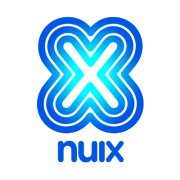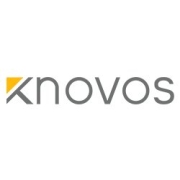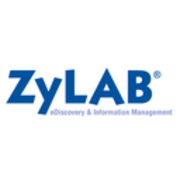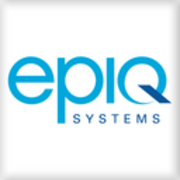eDiscovery solutions help organizations identify, collect, and analyze electronic information for legal, regulatory, and investigative purposes.
eDiscovery tools streamline the process of managing electronic evidence, significantly reducing the time and cost involved. These solutions offer advanced features such as data preservation, automated document review, and insightful reporting, ensuring compliance with legal standards. They are engineered for efficient data handling and provide robust search and analytics capabilities.
What are some critical features of eDiscovery solutions?
What benefits or ROI should users look for when evaluating eDiscovery solutions?
In the legal industry, eDiscovery solutions are integral for managing vast amounts of digital evidence quickly and effectively. Healthcare sectors use these tools to comply with regulations and handle data breaches or patient disputes. Financial services benefit by ensuring regulatory compliance and conducting internal investigations.
eDiscovery is critical for organizations looking to handle electronic data in legal or investigative scenarios. The technology simplifies the otherwise complex process of managing digital evidence, making it more manageable and efficient.




















































When a subpoena is issued requesting digital information from the parties, eDiscovery software is used by lawyers, law firms, and corporate legal departments to collect metadata, filter the information, and then review it to determine its relevance to the case at hand.
To qualify as eDiscovery software (also known as document review software), a product must be able to gather and classify data and then filter and sort the files in order to pull out the data that is relevant to the case. Common actions that eDiscovery software can take include file indexing, data ingestion, virus scanning, and optical character recognition (OCR)
One of the benefits of eDiscovery software is that it can cull out duplicate or irrelevant files, which means that the people doing research for the case have much less material to review. Cloud-based eDiscovery software has the added advantage of being able to produce, upload, and review documents online without having to deal with manual review, legacy software, or third-party vendors. .
The technologies and processes surrounding e-discovery can be complex because so much data is involved. Electronic documents are also much more dynamic than hard copy documents and can include metadata such as author and recipient information, time and date stamps, and file properties. The original content and metadata must be preserved so that later in the litigation process no one can claim that the evidence was tampered with or otherwise spoiled.
After both parties identify all data, any (electronic and/or hard-copy) documents that are potentially relevant will be placed under legal hold. This means the documents cannot be deleted or modified in any way. Data are then collected and extracted by the eDiscovery software, which integrates with file storage, database, and backup systems and other case management tools.
After the data are indexed in a database, they are then analyzed in order to cull whatever is not deemed relevant. The data that are extracted for use in the case are hosted in a secure environment where they are coded (often paralegals or contract attorneys) based on relevance.
Sometimes the relevant documents are converted into TIFFs or PDFs so that privileged or irrelevant information can be redacted. Predictive coding, CAR (computer-assisted review), TAR (technology-assisted review), and other analytic software helps to reduce the number of documents that the attorneys need to review, as well as to prioritize the documents they do review. This cuts hours spent on the case and therefore the cost of attorney fees.
Many law firms continue to use outmoded methods, such as paying paralegals an hourly fee review case-related ESI manually. This approach is long, cumbersome, and can often result in errors. E-discovery software improves and expedites the entire e-discovery process by identifying relevant documents more accurately and more efficiently and therefore making the legal proceedings less costly.
Benefits of eDiscovery software include:
Features to look for in an e-Discovery solution include:
eDiscovery solutions can rapidly process and analyze vast amounts of digital evidence, reducing the time and cost traditionally associated with litigation. These tools use advanced algorithms to identify relevant data swiftly, allowing you to focus on case strategy instead of data management. By automating repetitive tasks, eDiscovery solutions enable your legal team to work more efficiently and effectively.
What factors should you consider when choosing an eDiscovery software?When selecting eDiscovery software, consider its scalability, ease of use, and integration capabilities with your existing systems. Evaluate the software's ability to handle various data formats and its features for collaboration and secure data handling. It's essential to choose a solution that fits your team's workflow and provides high-quality customer support to address issues promptly.
How does AI enhance the capabilities of eDiscovery tools?AI enhances eDiscovery tools by enabling them to perform predictive coding, sentiment analysis, and pattern recognition. This makes it easier for you to locate pertinent information in large datasets. AI can improve the accuracy of document review by automatically tagging relevant content, reducing the risk of human error and expediting the review process.
What are the cost considerations when implementing an eDiscovery solution?While there's an initial cost to deploying eDiscovery software, consider the long-term savings in labor and time. The cost structure may vary, with options for pay-as-you-go or subscription models. Analyze your organization's specific needs and data volume to choose the most cost-effective solution. The investment can lead to significant returns through more efficient legal operations.
How can cloud-based eDiscovery platforms benefit your organization?Cloud-based eDiscovery platforms offer scalability, flexibility, and accessibility, allowing your team to access data and collaborate from any location. They typically provide enhanced security features and automatic updates, ensuring your data is protected and the platform remains up-to-date. This can increase your team's productivity and lower hardware and maintenance costs.